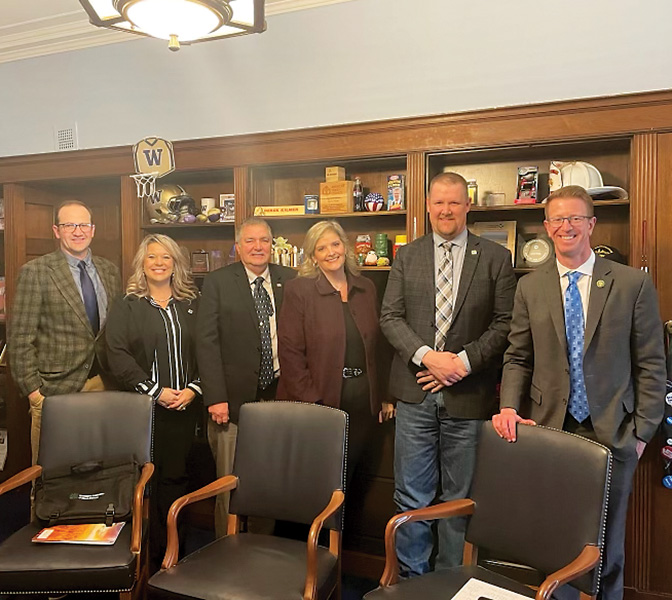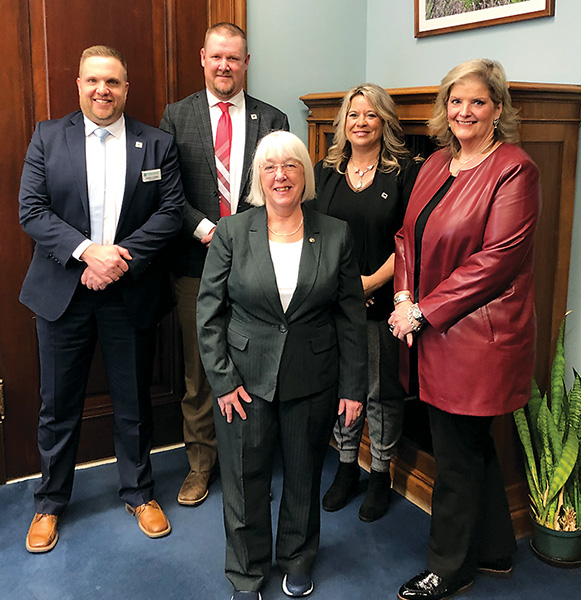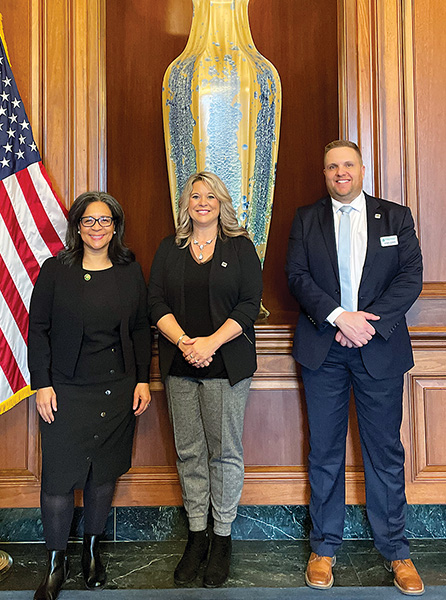On the Hill WAWG leaders meet with federal legislators to advocate for wheat industry
2023March 2023
By Trista Crossley
Editor
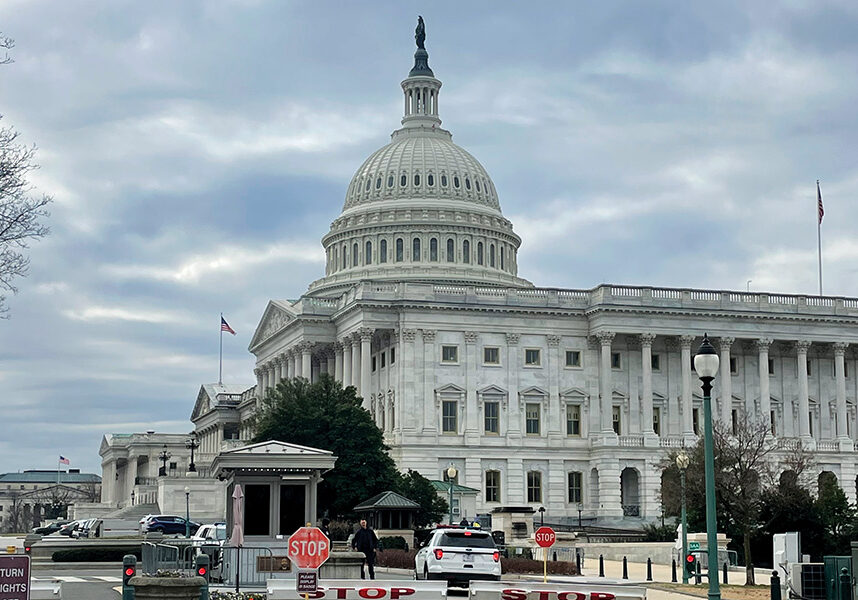
Staff and leaders from the Washington Association of Wheat Growers (WAWG) closed out January by traveling to Washington, D.C., to take part in National Association of Wheat Growers’ (NAWG) winter board meetings and to meet with members of Washington’s federal delegation and leaders of U.S. Department of Agriculture (USDA) agencies.
“With Congress starting 2023 Farm Bill work in earnest, it was very important that we support NAWG’s work and that we communicate our priorities to our members of Congress,” Michelle Hennings, WAWG’s executive director, said. “We were able to meet with either our lawmakers in person or a member of staff. We had great conversations, and we are ready to work together to keep the Washington wheat industry strong and successful.”
Joining the group for part of the trip were Shaley Tiegs and Angelina Widman, the 2023 Washington Wheat Ambassadors.
Wheat growers honored Rep. Kim Schrier (D-Wash.) with the NAWG Outstanding Wheat Advocate Award for her general advocacy of agriculture and her work on the House Agriculture Committee.
“WAWG appreciates working with lawmakers like Rep. Schrier. Across the broad spectrum of issues faced by Washington wheat growers, she has been consistently willing to listen, learn and advocate on our behalf for workable solutions. As a friend of Washington wheat, we were pleased to present her with a NAWG Wheat Advocate Award during our trip to Washington, D.C., and look forward to working with her in the future,” Andy Juris, WAWG’s president, said.
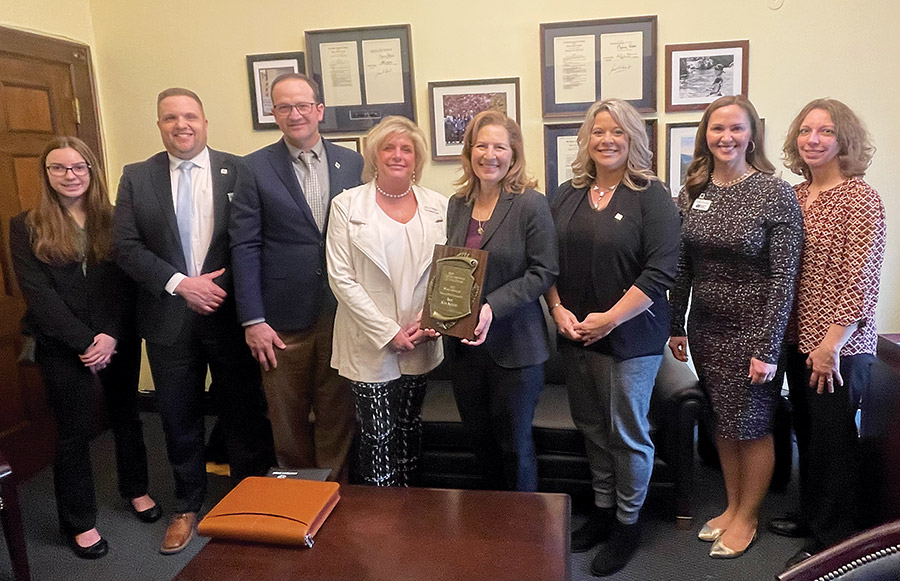
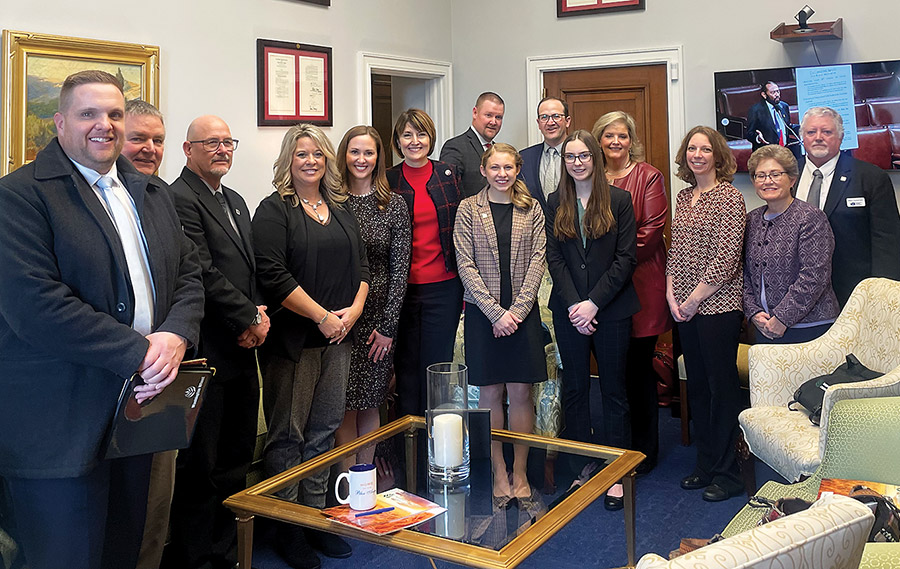
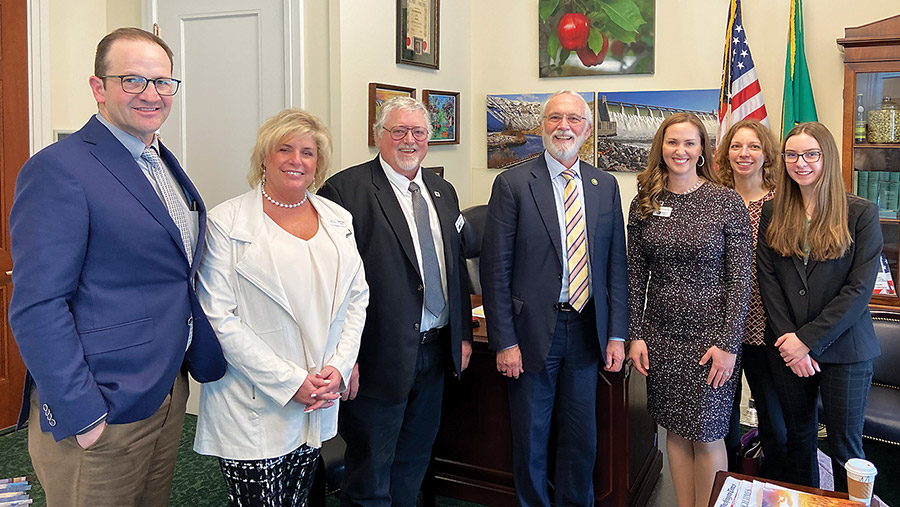
Growers met with Zach Ducheneaux, Farm Service Agency administrator, where they discussed the Conservation Reserve Program, disaster programs such as the Emergency Relief Program, and the farm bill. They also met with Astor Boozer, Natural Resources Conservation Service’s regional conservationist for the West Region, to talk about conservation programs and the farm bill.
In between Hill visits, WAWG leaders took part in NAWG committee meetings. Juris is vice chair of the Domestic Policy and Trade Committee, while WAWG past president, Howard McDonald, sits on the Environment and Research Committee. Ag Secretary Tom Vilsack spoke at the NAWG board meeting about the farm economy and USDA’s future strategy for assisting farmers.
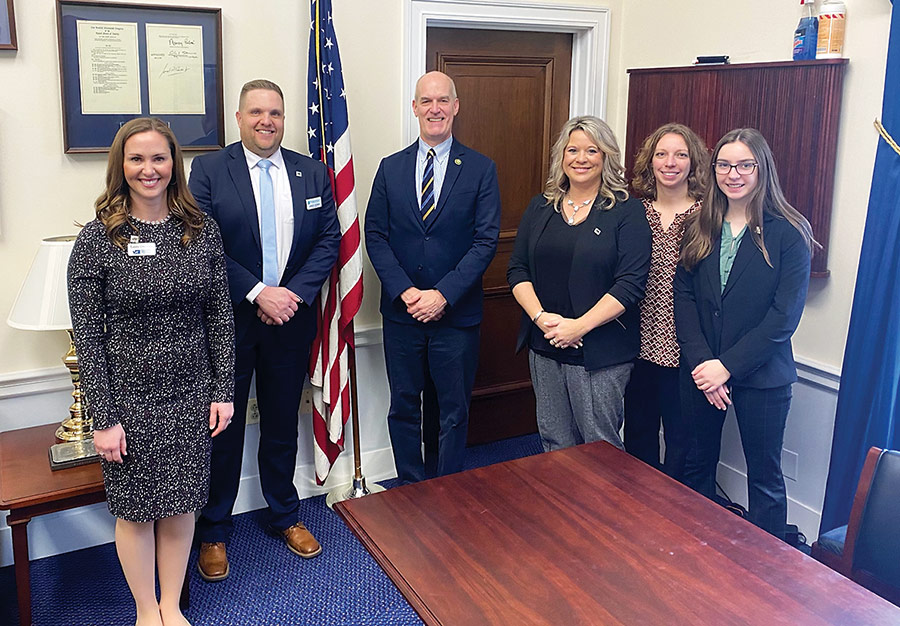
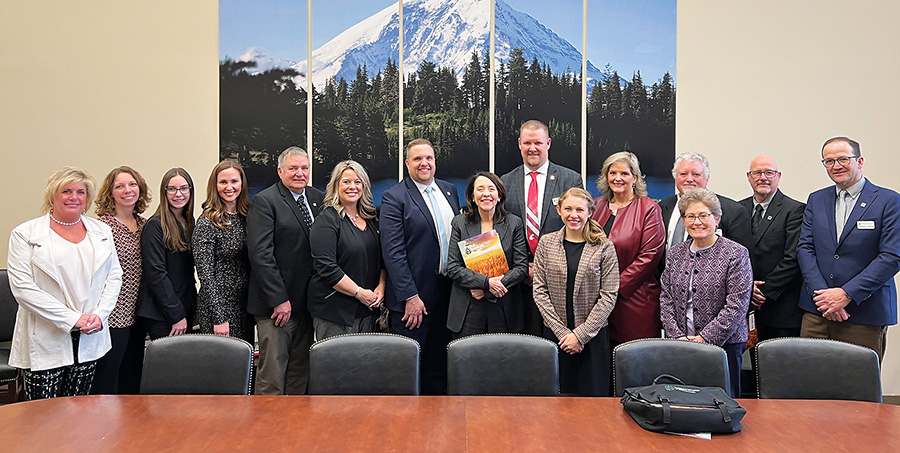
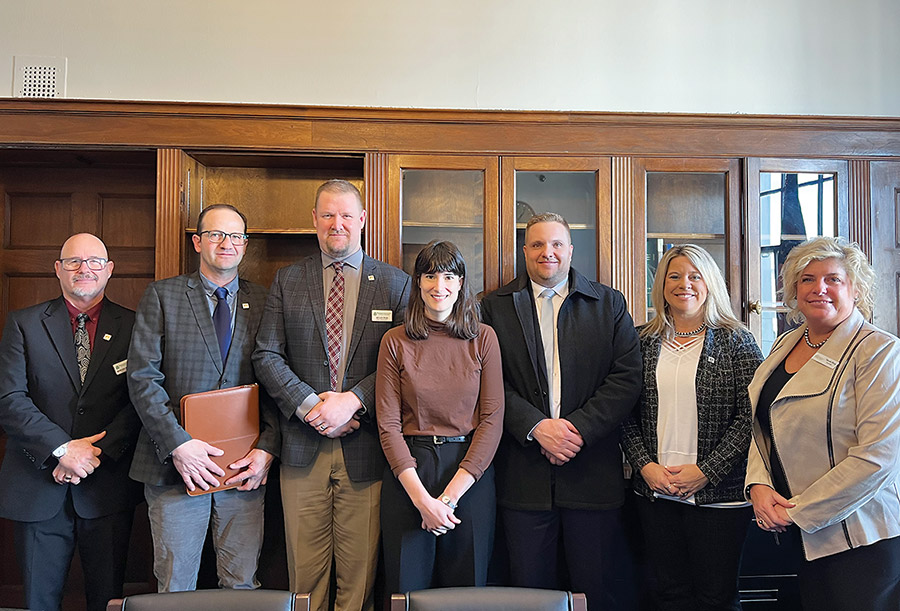
WAWG’s top 2023 national priorities include:
- Protecting our markets by purchasing U.S. wheat for U.S. food aid programs, rather than purchasing wheat from competitors; negotiating additional trade agreements to allow for further expansion of wheat exports and the full implementation and enforcement of existing trade agreements to allow fair trade to occur within the export marketplace; continued and increased strong federal funding through the Market Access Program and the Foreign Market Development Program to maintain the progress achieved with Agricultural Trade Program (ATP) funds; and enforcement of sanitary and phytosanitary agreements with trade partners.
- Preserving food security by supporting future farm bills to continue to offer agriculture and nutrition support programs; maintaining the current structure of the crop insurance program and current cost-share levels; reauthorization of the farm bill and making necessary adjustments to the Agriculture Risk Coverage and Price Loss Coverage programs so they can function effectively; and prioritizing working lands conservation programs in the conservation title.
- Protecting our environment through sustainable practices by supporting climate or sustainability legislation that is voluntary, incentive-based and recognizes the unique and varied landscapes and climates of wheat production.
- Promoting and protecting our infrastructure by keeping the lower Snake River dams intact as they are vital to Washington and the nation’s economy and transportation infrastructure; funding for maintaining the Columbia River System; funding to maintain and improve Washington road, river and rail systems; and supporting action regarding the Columbia River Treaty, which protects the viability of U.S. navigation, hydropower, irrigation and flood control. WAWG opposes any effort to remove or disrupt the dam system.
- Protecting food systems with safe and innovative pesticides by opposing cancelling crop protection product labels or uses unless equivalent replacement products are available; supporting the professional use of pesticides and best management practices for their use; and opposing legislation that would restrict or limit the use of pesticides through bans or by setting residue tolerance levels that are not based on science.
- Supporting incremental funding increases for USDA that cover mandatory pay costs and the rising costs at Agricultural Research Service research facilities that reduce funding for research and hamper the ability to address stakeholder needs.
